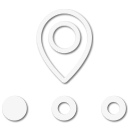
Advocate II
Buddy of mine gave me a few books on this a bit back and we've been hiking around looking at what stuff is edible in our area.
One was the old standby "chasing the wild asparagus", which is more stories and some ideas on stuff that grows out this way
and the other was a more scientific guide with solid photos and illustrations.
Still, anyone else poke around when out and hiking around? It's been seriously eye opening how much stuff is actually edible and decently tasty.
One was the old standby "chasing the wild asparagus", which is more stories and some ideas on stuff that grows out this way
and the other was a more scientific guide with solid photos and illustrations.
Still, anyone else poke around when out and hiking around? It's been seriously eye opening how much stuff is actually edible and decently tasty.





